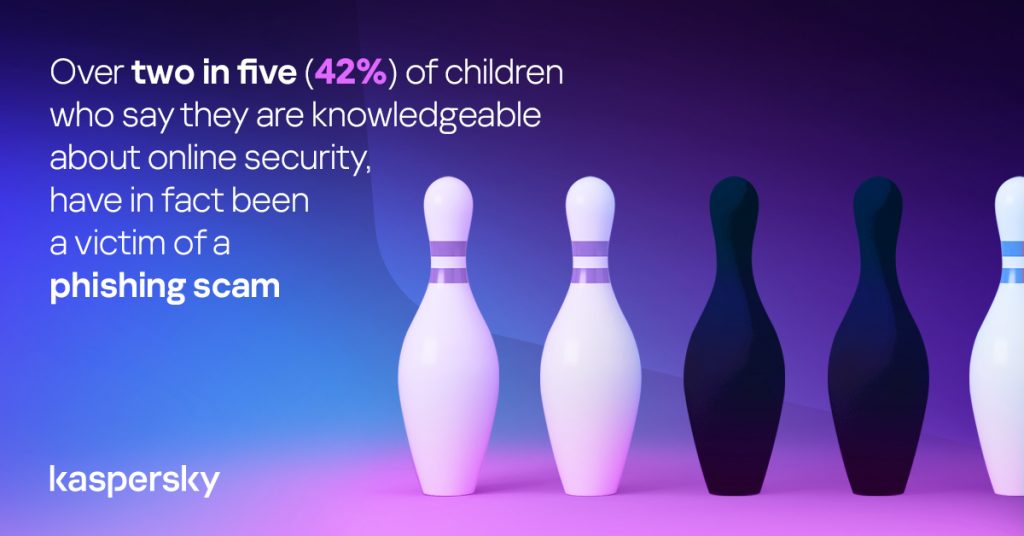It’s an often touted saying that children and young adults are digital natives and run rings around their elders when it comes to new technology.
Kaspersky also ran a survey recently to find out exactly how tech-savvy children and young adults were when it came to digital fraud and scams. It turns out that whilst young adults and children are indeed more tech savvy than their parents in many cases, they’re also falling for scams and phishing links just like older generations.
The report asked a range of people across Europe a series of questions around scams and phishing. Specifically, whether they had been a victim of them and whether they could spot a fake site or email by comparing to a real version.

Surprisingly around 3 in 10 children said they’d been a victim of a phishing scam, with over a third saying they knew they had been targeted once or more a month. What’s perhaps more surprising worrying, is that more than 2 in 5 children who count themselves as “knowledgeable” about online security had been a victim of phishing.
Teaching moments?
But whilst it’s easy to point the finger, it’s more difficult to both understand and to teach. Older generations, who are often seen as more susceptible to online scams, also aren’t teaching younger generations about how real world dangers playout online it seems, with only two in five adults saying they help their kids to identify phishing scams. Perhaps this is because in fact, some adults (28%) (by their own admission) know little about online safety and digital security. A case of the blind leading the blind, it seems. Or perhaps a case for combined efforts – tech know how from the youth with real world danger awareness from older generations can create the perfect security combo.
Where next?
Overall the young are much more comfortable around computers and digital technology than any generation before them, however that comfort can often lead to complacency – complacency that attackers and scammers are all to keen to exploit.
 report
report

 Tips
Tips